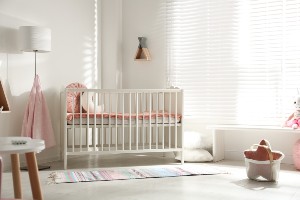
Those who qualify for Paid Family Leave enjoy job-protected paid time away from work to:
- Bond with a newborn or adopted or fostered child
- Care for seriously ill family members, including those diagnosed with COVID-19
- Assist loved ones during military deployment of a spouse, domestic partner, child, or parent
Those who utilize paid leave enjoy job protection, continued health insurance coverage, and protection from retaliation or discrimination related to using the benefit.
To learn more about the most up-to-date benefits offered through the Paid Family Leave law in New York, visit Paid Family Leave.
Who Qualifies for Paid Family Leave?
Most employees of private employers qualify.
However, there are some exemptions. For example, several religious positions including licensed priests, ministers, and rabbis do not receive coverage. The same is true for golf caddies and teaching or professional capacities for not-for-profit organizations. In some cases, employers in these industries offer paid leave even when not required by law. If you’re unsure about your situation, speak to your human resources department.
Even if your position qualifies for benefits under the Paid Family Leave law, you must still meet a few requirements. For example:
- Full-time employees must work at least 20 hours or more per week for at least 26 consecutive weeks to qualify
- Part-time employees who work fewer than 20 hours per week must work for at least 175 days (consecutive or non-consecutive) to qualify
- Employees who work inconsistently and are not sure which of the first two categories should assess their average schedule to determine if it’s greater or less than 20 hours per week
New Employees Might Need to Wait to Utilized Benefits
Once you’ve met the requirements for eligibility, you’ll remain eligible with that employer until employment ends. If you switch jobs, you’ll need to meet the requirements again with the new employer to gain eligibility.
Also, keep in mind, your immigration or citizenship status has no bearing on your eligibility. As long as you meet the eligibility qualifications and you aren’t employed in one of the few exempted positions, you can apply for Paid Family Leave.
Public and union-represented employees might be eligible for Paid Family Leave. This is the case if their employer has opted into the benefit voluntarily or if the benefit was negotiated through collective bargaining.
Self-Employed Individuals Might Be Eligible for Benefits
Eligibility is available to self-employed individuals and independent contractors who voluntarily opt into the program. Employers don’t need to offer benefits if working with independent contractors (ICs). But as self-employed people, ICs can opt-in just like any other self-employed party.
If you’d like to discuss whether or not you qualify for Paid Family Leave benefits or your employer has denied your benefits even though you do qualify, we can help. Contact Borrelli & Associates, P.L.L.C. to schedule a free consultation.


















